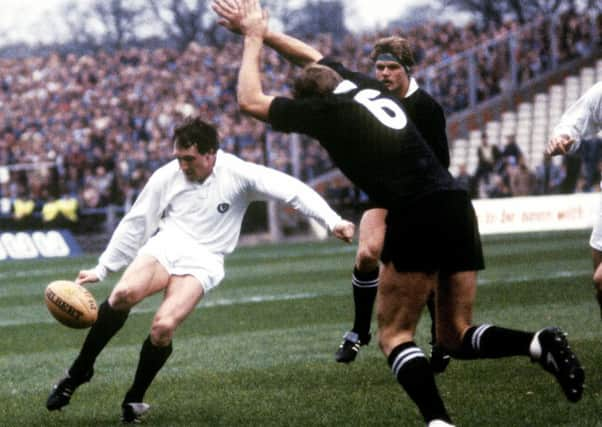Celtic countries must resist proposal to condense Six Nations to five weeks


David Sole’s Grand Slam team came very close to winning in New Zealand and Vern Cotter remarked this week that they deserved to have won one of the two Tests. But there it is; there’s still a zero in our wins column.
However, this year, Ireland have shown that even the present outstanding New Zealand side isn’t invincible and, last week in Leicester, Townsend’s Glasgow team played as if they were All Blacks themselves: pace, intensity, powerful ball-carrying, relentless support, audacious and mostly successful off-loading. The defence wasn’t half-bad either. I can’t remember who first described New Zealand teams as “Scots who have learned how to win”, but it’s a lesson that, some of the time anyway, we seem at last to be learning ourselves.
Advertisement
Hide AdAdvertisement
Hide AdIt’s taken a very long time since the game went open – that is, professional. Glasgow have now reached the knock-out stage of the European Cup for the first time. Edinburgh have been there twice. Last weekend, Munster also reached the quarter-final – in their case, for the 16th time. That puts things in perspective. Yet, 20 years ago, when the IRB first allowed players to be paid, Scottish rugby was stronger than Irish.
So, why the difference? Ireland built from the ground up. The provinces were successful before the national team was. Here, we attempted the reverse: building the house from the top-storey down, in the hope or expectation that success at international level would somehow filter down to the pro clubs. It didn’t happen and, in recent years more money has been invested in the pro clubs. Glasgow especially have met with success, Townsend building on the foundations put in place by Sean Lineen and the benefits are now being felt by the national side.
On Thursday, a London newspaper announced that there is a plan to condense the Six Nations tournament, staging matches on five successive weekends instead of over seven. Actually, it’s not a plan, merely a proposal from English Premiership Rugby. The origin should be enough to make us suspicious. It is evidently in the interest of the clubs and their owners to lose their international players for fewer weekends. (They aren’t made available to their clubs in the fallow weekends which allow the international teams rest and recuperation).
Clearly, the intention is not to improve the Six Nations (despite the talk of making it like the World Cup in which there are no “rest periods”). Quite the contrary. Just as football managers in the English Premier League only reluctantly release their players for international duty, so the rich men who own rugby clubs – in France as well as England – evidently regard international rugby without enthusiasm, as an unwelcome distraction from their domestic league.
The proposal requires the support of the Six Nations authority to be enacted and should be resisted for three reasons. First, the tournament is sufficiently condensed already; it’s not so long since the matches were staged every fortnight.
Second, given that condensation will almost certainly lead to more players missing games with minor injuries, it benefits the nations with greater strength in depth – i.e. England and France.
Third, it takes no account of the wishes and interest of supporters, many of whom may think (as I do) that the tournament is already over too quickly. Travelling to three away matches in five weeks might strain not only finances, but even marriages. So Scotland, Ireland, Wales and Italy should all say “no”.
Digging into the records, journalists happily discovered that Glasgow were only the second Scottish team to beat Leicester at home. But there seems to be some confusion or disagreement about their predecessor. The match commentator declared that Old Lorettonians won in 1905; others say it was Fettes College.
Advertisement
Hide AdAdvertisement
Hide AdThe second seems unlikely and I suspect the victory was gained by the Fettesian-Lorettonian Club, which used to play tour games in England over Christmas and Easter. No doubt some Scotsman reader can put us right.
If it was Fettesian-Lorettonians, then it seems likely that K G Macleod, scorer of a famous try when Scotland beat South Africa at Hampden Park in 1906, may have been in the team that triumphed in Leicester. Macleod, who retired from rugby aged only 21 at his father’s insistence (his elder brother having been badly injured playing) was our greatest pre-1914 all-round sportsman. A triple Blue at Cambridge (cricket, athletics and rugby) he later played cricket for Lancashire and football (as an amateur of course) for Manchester City.
Perhaps somebody can find a teamsheet or a match report for that famous game in Leicester?